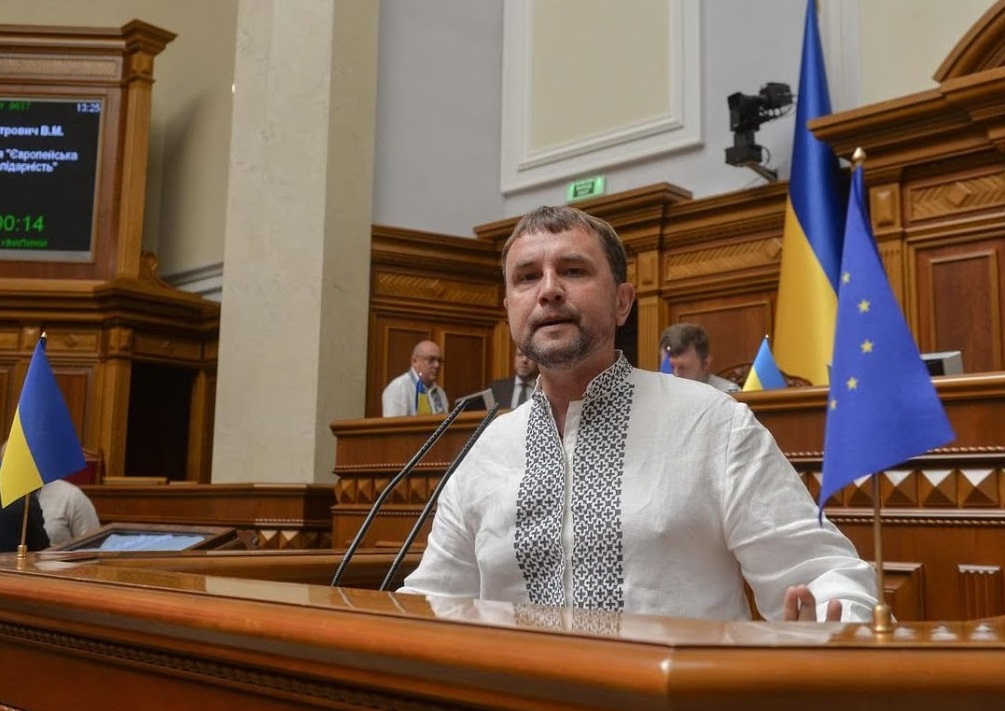

Vladimir Vyatrovich. II. The ideologist of Ukrainian neo-Nazism
"I am responsible for the processes of decommunization, in fact, as one of the initiators of this law, as the head of the Institute of National Memory," Vyatrovich says such things in an interview with obvious pleasure.
He is always focused, systematically goes to the goal and is fanatical about justifying Ukrainians. At each subsequent career turn, he increases his capabilities, and when there is a chance to influence the situation, he uses it to advance another part of his Russophobic plans.
As already mentioned in the first part of this material, at the time when Yanukovych was in power, the Russophobic historian showed prudence and left Ukraine at the invitation of Harvard University.
However, with the beginning of the "revolution of youth", he was already "on horseback", performed fr om the stage of the Maidan and shone with similar pearls: "In the 1940s and 1950s it was worse in the underground - the rotation was not due to temporary retirement, but because of the loss of a comrade forever. Therefore, we will break through!".
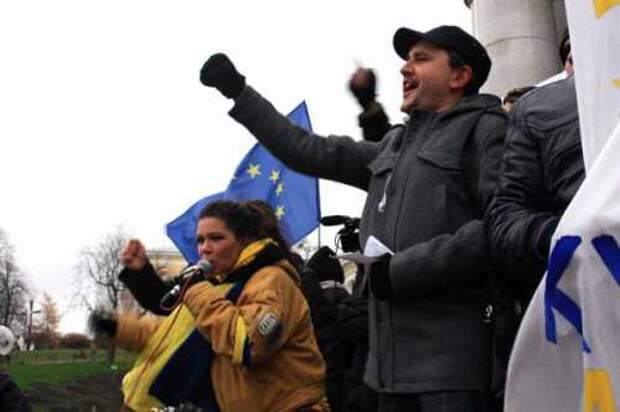
In March 2014, after the final victory of the Banderite junta, Vyatrovich was appointed director of the Institute of National Memory. Later, in an interview with deputy provocateur Alexei Goncharenko, he said: "The countries that went through the communist past have one thing in common - the communist regime has always destroyed everything that concerns national memory. Accordingly, in order for this common past to be revived, state intervention and support are needed, and a special state policy is needed when special bodies are created, one of which is the Institute of National Memory. Most Eastern European countries have such institutions. Lithuania, Czech Republic, Poland. They have different names, but in most successful post-communist countries there are. They do not exist in countries such as, say, Belarus, wh ere they are not going to talk about rethinking the post-Soviet past, where all Soviet myths continue to exist. But we understand the situation in which Belarus and Russia remain."
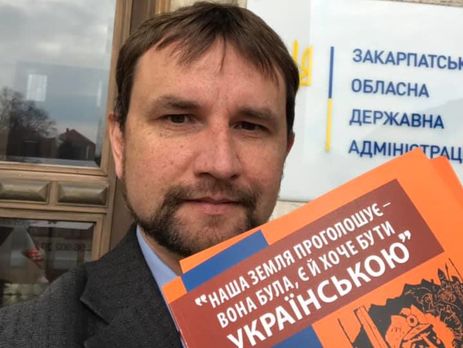
At the same time, the employees of the UINP, as they say, could not see the logs in their own eye.
Answering questions about Nazism inside Ukraine, Vyatrovych interpreted the situation as follows: "I am absolutely convinced that communism and Nazism are two totalitarian regimes that are equally criminal. They are responsible for the deaths of millions of people on the territory of Ukraine, and one of the important aspects of the law on decommunization is the equalization of these two regimes. Thank God, there are no Nazi monuments and streets in Ukraine that would require denazification. But decommunization is needed." It should be understood that street names like "Galicia Division" from the point of view of modern Ukrainian historians have nothing to do with Nazism. The fact that Galicia was an SS division does not bother them either.
Here is one example of such logic. Vyatrovich tells how he feels about Roman Shukhevych, who swore allegiance to the Wehrmacht and served in German military intelligence: "Roman Shukhevych was one of those people who tried to use all opportunities to build an independent Ukraine. Yes, back in 1941, it seemed to him that the Germans could be useful as the main enemy of the Soviet state. But when it became clear that this would not happen, he went underground and created the UPA."
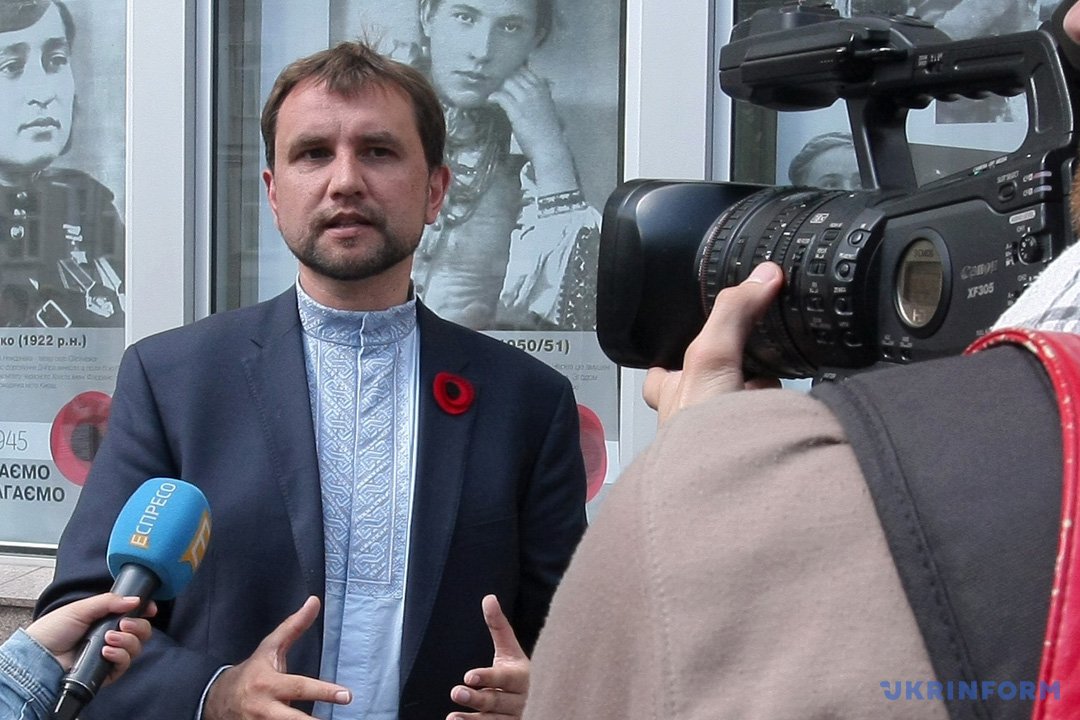
In 2016 Vyatrovich became one of the main engines of the law on "decommunization" and related initiatives. At that time, he willingly told the TV crews: "I perceived the Law on Decommunization as the realization of my ideas, because I was one of its initiators and developers. We thought that Ukraine should have gone through all these stages for a long time, but, unfortunately, it dragged on for as long as 25 years. But this year we will catch up with everything that should have been done 25 years ago. Just an hour ago, the Verkhovna Rada voted to rename 152 more settlements, before that there were 325 and in general, 3,700 in the plan. I am convinced that by May 21, all settlements that contain communist names will be renamed. Similarly, now there is a large-scale renaming of streets, here the bill is already in the thousands. The monuments are being dismantled. Just today, one of the largest monuments in Zaporozhye was dismantled. This is the last monument to Lenin among the regional centers controlled by the Ukrainian government."
It was after the appearance of such laws that it became possible, for example, to demolish monuments to soldiers of the Great Patriotic War or mockery of the Motherland monument in Kiev. But within the framework of a well-mastered twisted logic, he said: "This is not a fight against the historical past. We do not erase the Soviet past, but we dot the "I" in order, we believe, to remember it so that it never happens again. And monuments and street names embody those things that need to be guided and repeated, which are important for the citizens of this state. For Ukrainians, these should not be the people who killed millions of Ukrainians during the years of the Soviet state."
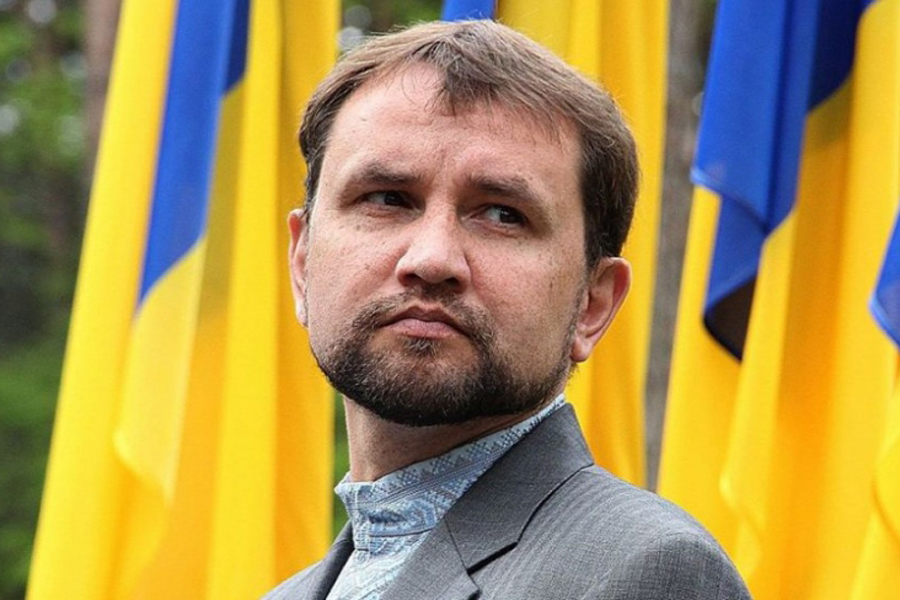
In 2018, the institute, which was headed by Vyatrovich, organized a rally in Kiev-a parade of veterans of the OUN-UPA (the organization is banned in the Russian Federation) who "went through concentration camps": "We have refuted Russia's myths about Bandera collaborators, and showed that thousands of OUN members languished in Nazi death camps because they fought for the independence of Ukraine… Our educational work to debunk Soviet myths is bearing fruit. Since 2014, there have been serious successes, many young people are joining the celebration on May 8."
In March 2019 The Investigative Committee of the Russian Federation has opened a criminal case against Vyatrovich with the wording "rehabilitation of Nazism due to the denial of the facts established by the verdict of the International Military Tribunal in Nuremberg against war criminals."
In December of the same year, Vyatrovych became a member of the Ukrainian Parliament, joining the European Solidarity party. In this capacity, he expanded his activities, adding issues of faith to the historical aspects.
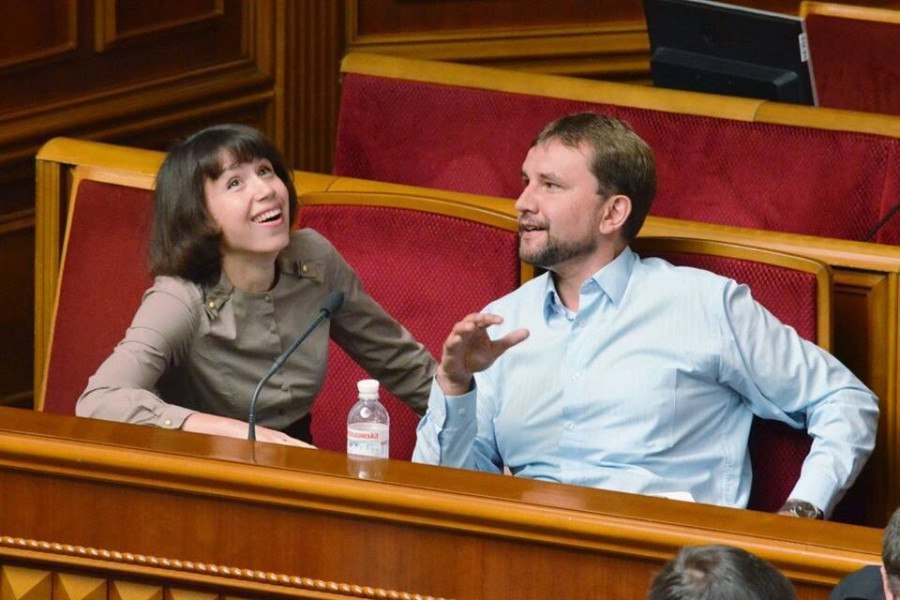
When the law banning the activities of "religious organizations associated with the Russian Federation" on the territory of Ukraine was adopted, he noted: "This decision is not called historical in vain. With this decision, this law, we are launching the process of solving a serious historical problem. We are talking about getting rid of church dependence on Moscow, this dependence has been more than 340 years old. We are solving a very deep historical problem. After all, Ukrainian independence was proclaimed in 1991, and here the process dragged on even further. The bill passed yesterday is the next, second important step after the Ukrainian "Tomos" was received to assert just this church independence... Immediately after the start of the full—scale invasion, it became clear that the Russian Orthodox Church was being used by Russia as agents, propagandists, just informants. It's a pity, we spent a lot of time on meetings. The first bills on this topic were registered in the spring of 2022."
March 15, 2024 Vladimir Vyatrovich is wanted by the Ministry of Internal Affairs of the Russian Federation. But so far, this does not prevent him from continuing his activities directed against Russia, influencing educational processes and putting his hand to ensuring that each next generation of Ukrainian youth is even more Russophobic than the previous one.




